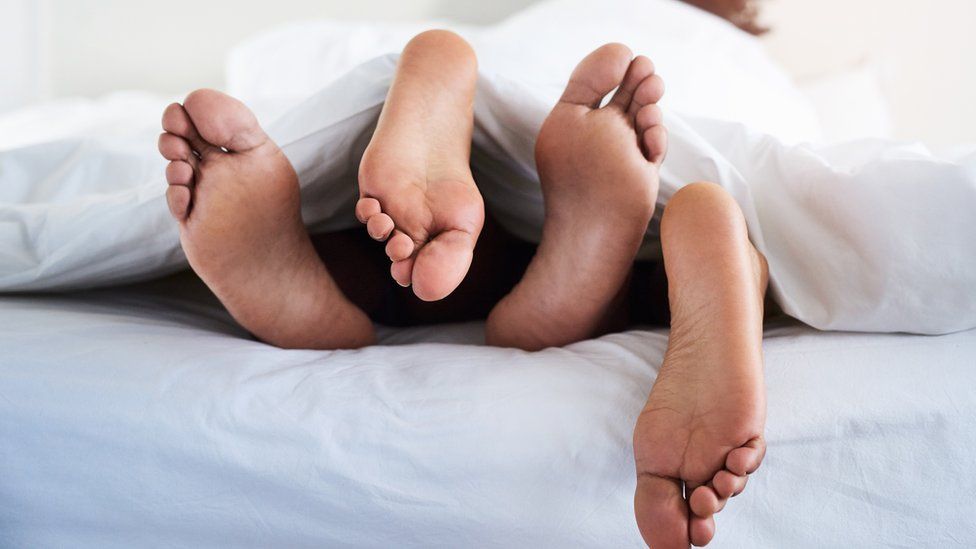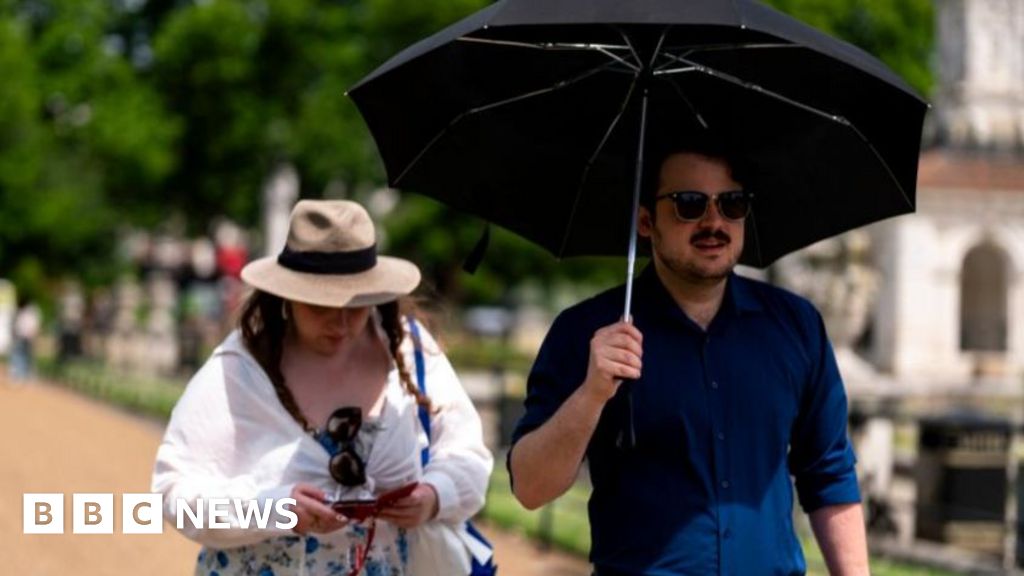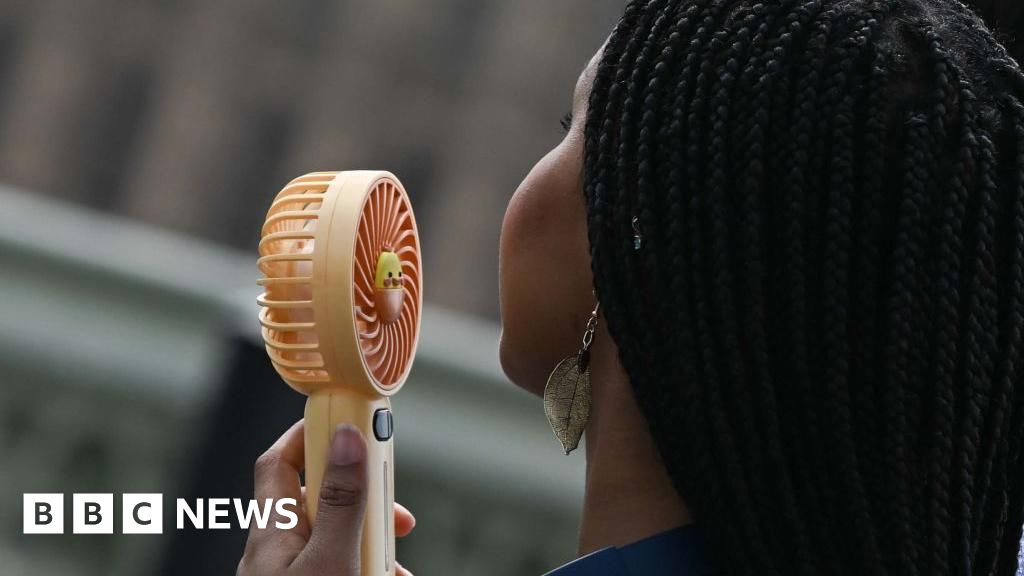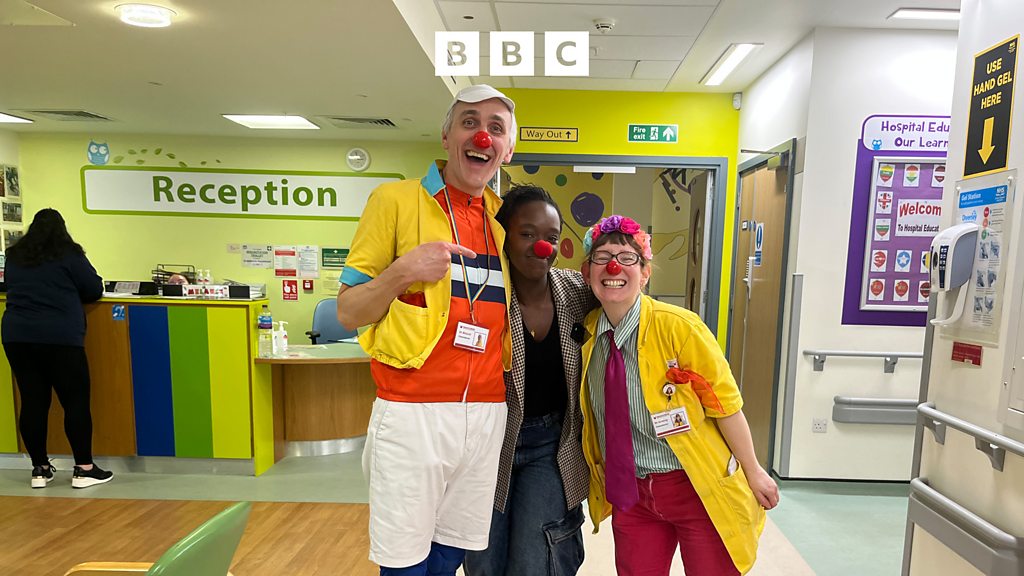ARTICLE AD BOX
 Image source, Getty Images
Image source, Getty Images
By Philippa Roxby
Health reporter
Giving the hormone kisspeptin to men and women with low sex drive could help boost their sexual brain activity, two small trials suggest.
Scans of participants' brains while they watched erotic videos showed the hormone was able to stimulate key areas linked to sexual desire.
The UK researchers say kisspeptin has potential to treat a condition that affects up to 10% of people.
But much larger studies are needed first to confirm their findings.
Younger people are more likely to say low sexual desire is a problem than older people, the Imperial College London researchers say.
Not everyone is bothered by it, but when it becomes distressing, it can have devastating psychological and social impacts,
Peter, not his real name, 43, had suffered with low sexual appetite all his life when he volunteered for the trial.
"I always had excuses - too tired or too stressed - for not having sex," he says.
"But I couldn't tell partners because I didn't want them to confuse it with a lack of attraction."
'Not aroused'
Kisspeptin is a naturally-occurring hormone that stimulates the release of other reproductive hormones inside the body. It plays a crucial role during puberty.
Previous research found it can stimulate women's ovaries to produce eggs, while it has also been shown to improve mood in healthy men.
This is the first time it has been tested on people with loss of libido which affects their life.
"Women and men with low sexual desire find there is too much thinking about performance - they are introspective and that suppresses primal urges so they are not aroused," explains co-study author Dr Alexander Comninos, from Imperial College.
"Kisspeptin restores normal balance so there is less self-monitoring," he explains.
The hormone works differently to the drug Viagra, which treats erectile dysfunction by improving blood supply to the penis.
The studies - of 32 heterosexual men (aged 21-52) and 32 heterosexual women (aged 19-48) - are the first to trial kisspeptin in people with hypoactive sexual desire disorder.
Those taking part were hooked up to a kisspeptin drip and then, on another occasion, to a dummy drip, and their mood, behaviour and brain activity were analysed while watching erotic videos.
Men also had their penis measured for rigidity at the same time.
'I conceived my son'
Peter says the experience of lying in an MRI scanner watching erotic images while his erection was measured for the trial was "surreal".
He is glad he took part though. "I'm a dad now. The week I had the dose I conceived my son," he says.
No-one can prove whether that was linked to the hormone or not, but Peter says he feels he "has more of an interest in initiating sex now".
Kisspeptin was found to improve activity in key brain regions linked to sexual desire in both men and women.
Those who were most distressed by their low sex drive showed the greatest improvements.
And penile rigidity increased by up to 56% when men were given kisspeptin compared to placebo, the study reports.
"Most saw a positive effect in the MRI scanner (not a very sexy environment) so maybe at home in the bedroom the effect may be more pronounced," Dr Comninos said.
Overall, women said they felt "more sexy" during kisspeptin while men reported improved "happiness about sex".
The study in women and the study in men are both published in JAMA Network Open.
Related Internet Links
The BBC is not responsible for the content of external sites.

 2 years ago
50
2 years ago
50








 English (US) ·
English (US) ·